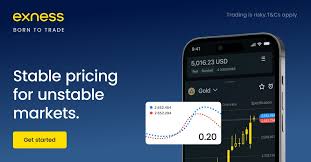
In the world of Forex trading, choosing a regulated broker is crucial for ensuring safety and security. One such broker is Exness, which has gained a significant reputation in the trading community. This article delves into the Exness Forex regulatory framework, highlighting the importance of regulation, the specific regulatory bodies overseeing Exness, and what this means for traders. For an in-depth review, you can visit exness forex regulatory exnessreview.net.
What is Forex Regulation?
Forex regulation refers to the establishment of laws, rules, and guidelines that govern the operation of Forex brokers. The primary objective of these regulations is to protect traders from fraud and ensure a fair trading environment. Regulatory bodies enforce these laws, imposing penalties and sanctions on brokers who fail to comply. For traders, choosing a regulated broker like Exness means having recourse to protect their investments in case of disputes.
Exness Overview
Founded in 2008, Exness has rapidly evolved to become one of the leading Forex brokers globally. It provides a variety of trading services, including Forex, cryptocurrencies, commodities, and more. The firm is known for its user-friendly platform, competitive spreads, and fast execution speeds. To solidify its position in the global market, Exness emphasizes the importance of regulation and compliance.
Regulatory Bodies Behind Exness
Exness operates under multiple regulatory authorities, each of which plays a crucial role in ensuring the broker adheres to strict safety and operational standards. The key regulatory bodies associated with Exness include:
- Financial Conduct Authority (FCA): Based in the UK, the FCA is one of the most esteemed regulatory bodies. Brokers regulated by the FCA must adhere to stringent rules, including the separation of client funds from company assets and maintaining a minimum capital requirement.
- Cyprus Securities and Exchange Commission (CySEC): As a prominent regulator in Europe, CySEC oversees financial firms in Cyprus. Brokers regulated by CySEC are required to follow specific legal obligations aimed at protecting clients’ interests.
- South African Financial Sector Conduct Authority (FSCA): The FSCA is responsible for maintaining the integrity of the financial services industry in South Africa. Exness’s registration with the FSCA enhances its credibility in the African region.
- International Financial Services Commission (IFSC): Based in Belize, the IFSC regulates offshore brokers and aims to protect investors. Exness is also licensed by this body, which adds another layer of security for its clients.
Investor Protection Measures

Regulation is more than just a badge of honor for brokers; it involves robust mechanisms to protect investors. Here are some investor protection measures that Exness provides:
- Segregation of Funds: Exness keeps client funds in segregated accounts, meaning they are separate from the company’s operational funds. This practice ensures that clients’ money remains secure even in the event of company insolvency.
- Negative Balance Protection: This feature guarantees that clients cannot lose more than the amount they have deposited. It provides a safety net against market volatility and unforeseen events.
- Compensation Schemes: As part of its regulatory obligations, Exness participates in compensation schemes that protect clients’ funds up to certain limits if the broker becomes insolvent.
Compliance and Transparency
One of the hallmarks of a regulated broker is its commitment to compliance and transparency. Exness adheres to rigorous reporting standards, demonstrating its dedication to ethical trading practices. Clients have access to detailed information about the company’s operations, including financial reports and trading conditions. Transparency helps build trust between Exness and its clients, leading to a more positive trading experience.
Regulatory Challenges and Developments
The Forex market is dynamic, and regulatory bodies continually review and update their frameworks to address emerging challenges. Exness must navigate these developments to maintain its regulatory status. Potential challenges include:
- Changes in Regulatory Standards: As financial markets evolve, regulatory bodies may implement new standards or amend existing ones. Brokers like Exness must ensure they remain compliant to retain their licenses.
- Geopolitical Factors: Global events can impact regulations and the trading environment. Exness must remain agile, adjusting its operations in response to such changes.
- Technological Advances: The rise of fintech and blockchain technology is changing how brokerages operate. Exness has to integrate innovative solutions while maintaining regulatory compliance.
Conclusion
Understanding the regulatory landscape of Forex trading is essential for any trader looking to invest safely. Exness has positioned itself as a trusted broker by adhering to multiple regulatory standards and prioritizing investor protection. By ensuring proper compliance and maintaining transparency, Exness empowers traders to focus on their trading strategies with confidence. As financial markets continue to evolve, it will be crucial for Exness and its peers to adapt and uphold the highest regulatory standards to maintain the integrity of the Forex market.

Leave A Comment